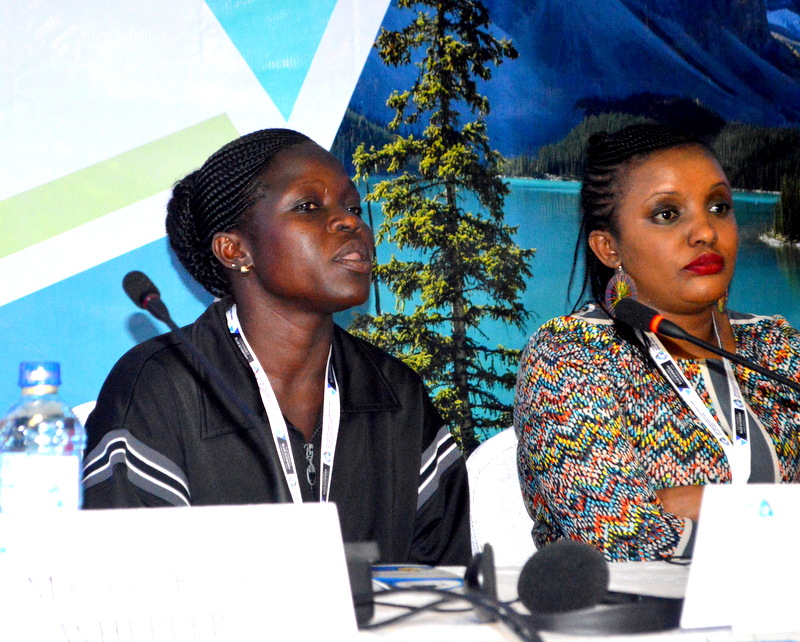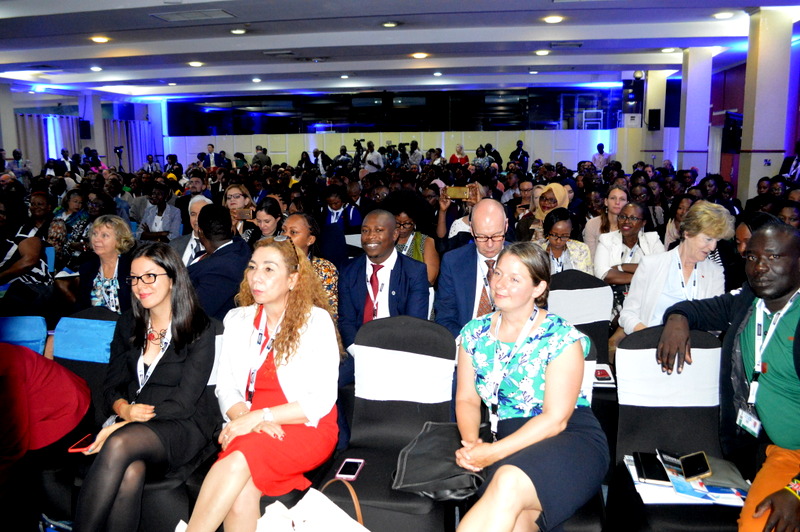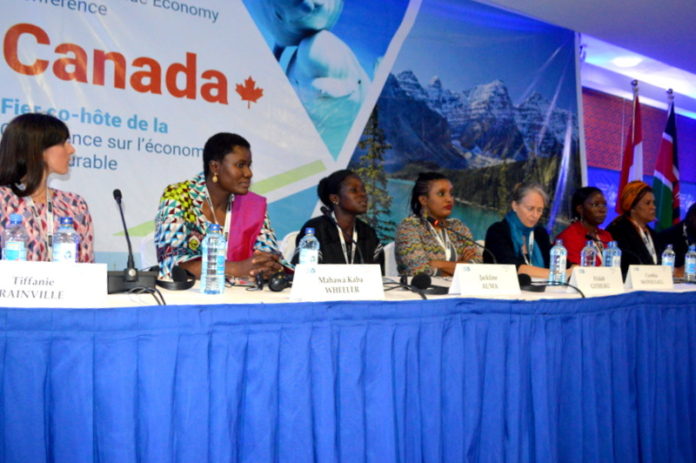|
Getting your Trinity Audio player ready...
|
By Mary Mwendwa
Her strong voice and well calculated words, struck delegates during a gender side event organized by IDRC and Canadian Embassy In Kenya.
She expressed herself well in Swahili, but this did not hinder her points being driven home.
Jackline Auma was not just an ordinary panelist. She sat among high level presenters during the gender event that saw many delegates from all walks of life keen on gender mainstreaming agenda.
Her story, is not unique for many rural women who try their luck in venturing in fishing business.

Auma’s strong will and dedication in fishing business which started in 2015, has seen her to be among the very few women who own boats in the fishing industry. Boats are mostly owned by men and therefore many women shy off from owning them.They are expensive to buy and need hard work .
She catches Tilapia, little mackerels, cavallas among other fish species.
“I am a boat owner at Kenya’s coastal area, Mowa beach in Mpeketoni, I come from Western Kenya but my family lived at the coast and my father was a fisherman.I learnt the skill from him and that made it easy for me to venture in the fishing business.”
Auma, a single mother of two, narrates how she used to follow men on the beach to try and learn their tactics in the fishing business.”It was not easy for me, I had to learn to sew nets myself.With time I gained skill and ventured into the fishing business.”
Auma later saved money and bought a boat at 20,000 Ksh “This was my happiest moment ever, when I owned a bought, that was a sigh of relief for me.I then employed one worker who is always there to help me in my daily activities.
She also rents the bought at 50 ksh per day and that is good for her.”I make income from the renting of the boat and also from fish sales I get around 20,000 Ksh per month.This is good for me as I can take care of my needs .”

“There are seasons that I miss fish, I have supplementary income from my farming business where I grow watermelon and maize.”
Auma notes that financing is a huddle for many women who want to venture into fishing business.For her, she had to work extra hard to own a boat.
Auma’s space in the blue economy sector is critical because it touches on the low income population who depend on the products and casual jobs from the sector.
President Uhuru Kenya noted during the official opening of the Blue Economy event that little attention has been paid to the impact of human action on the health and productivity of our waters.
“We are already feeling the impact of plastics in oceans.The eight million tons of plastics that enter the sea each year are transformed into micro plastics that enter the food chain hence impacting on ecosystems as well as animal and human health globally.”
The event , which runs from 26th -28th November 2018 ,will see leaders commit on sustainable blue economy by giving pledges that will form basis upon which they will be held accountable.














